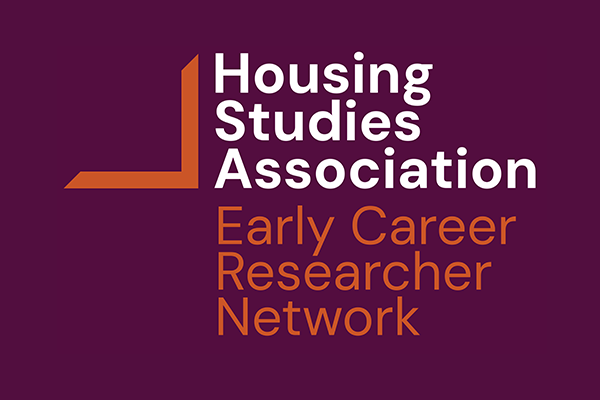Demystifying the world of policy: insights on how the housing studies community can engage effectively with policymakers
This year’s HSA Autumn Lecture set out to demystify the world of policy making. It was held online on 28th October 2024. As academics, many of us embark upon our research because we care passionately about the work we do and want to make change. Over the last decade there has also been an increased focus on ensuring that the work being done within academia has an ‘impact’ beyond the academy, and has an economic and societal impacts given that often it is taxpayer funded.
In the UK, there is a new Labour government, and though still early in their political term, it has become clear that housing is forming a keystone of their priorities. With lots of announcements of reform, and a plethora of consultations being published, now feels like a good a time as any to explore policymaking in a little more detail. Thus, it felt important to get a sense from those in the know, what academics – no matter how early in your career – can be doing to help influence change in a robust, informed and evidence-based manner.
We were very lucky to be joined by four brilliant experts.
Francesca Albanese (Executive Director of Policy and Social Change at Crisis), chaired the event, and a panel of speakers from across Scotland, Wales and Northern Ireland:
- Professor Beth Watts-Cobbe is Deputy Director at the Institute for Social Policy, Housing and Equalities Research (I-SPHERE),
- Jennie Bibbings, Former Head of Campaigns at Shelter Cymru and now Senior Researcher on Housing [RC3] [GY4] and Homelessness at the Senedd
- Dr. Joe Frey, Knowledge Exchange Broker, UK Collaborative Centre for Housing Evidence (respectively).
We urge you to go and listen back to the event if you missed it, as each of them gave fascinating insights into their work. You can watch the recording here.
But, in terms of demystifying the world of policy, what did we learn?
Some tips for engaging in the world of policy
Despite coming from different political contexts, and each speaker holding a slightly different perspective on the world of policymaking and research, there were several key themes that we can draw from the lecture:
- Relationships and networking: getting to know how the policymaking world works, and those who are involved will help to get you and your work known. Be respectful and mindful of the pressures that policymakers are under. Through collaboration and engagement with a wide range of stakeholders, often research can have a stronger influence on policymaking.
- Keep up-to-date with the policy environment: it is important for your credibility, and for your work to be read and taken seriously, that you keep up to date with the policy environment. Most things being discussed, especially in parliament, will be publicly available, and so it is worth looking at scrutiny committee records of proceedings and accompanying papers, for example.
- Be measured and respectful: If policy engagement is what is motivating your work, it is important to recognise that policymakers are under lots of pressure, and have to make lots of decisions that require trade-offs in other areas.
- Be present, get involved: there are a lot of opportunities to get involved in the process of policymaking, but it is important to get yourself known. Those involved in policymaking are time-poor, and when they need information, they will be reaching out to those who they know well. Get yourself a social media presence, write blogs and share your research with those involved in the policy-making process, attend non-academic events and respond to committee publications.
- Less is more: to build better engagement in the policy-making world, outputs need to be solutions focused with tangible recommendations, and presented in shorter, more accessible documents. Sometimes blogs (or even sharing raw data early on) can be helpful ways to engage with those in the policy-making world.
Some warnings about how academics can sometimes be perceived
It probably will come as little surprise to any academics reading this that academia and the policymaking worlds do operate at different paces, and they are each imbued with their own pressures and challenges. This means that sometimes academics might not be called upon because they can’t provide what a government department might need in the timeframe.
Linked to this, we also need to be mindful of what information we prioritise. Academics can be perceived as being ‘waffly’ and not having their fingers on the pulse. If we are trying to influence policy through our research, we need to be aware of how busy the people we are attempting to reach are, and how much information is being sent. In this context, long reports with complex language will not be read. There also doesn’t need to be the same attention given to the methodological and statistical components of our work. Of course we can signpost to it, so it can be read if people are interested. But being able to distil complex issues into clear, pragmatic recommendations (and less is more when it comes to the number of recommendations too!) is what is needed in this context. It is also important to be aware of the latest developments in policy to ensure credibility is maintained.
You should also be transparent about who is funding research, so that there is no suspicion about any hidden agendas, and that policymakers have confidence that research is robust and independent.
Pushing against closed doors? Keep trying or walk away
During the lecture the conversation also explored what to do when government refuses to listen to evidence, or when you feel like there is resistance to your research. In the first instance, trying to understand the problem can be helpful. If you can get a better understanding of where the government are coming from, or why they’re saying ‘no’, you might get a better understanding, and there might be ways to adjust your message. Digging a little deeper could also show that we are not explaining ourselves clearly enough, perhaps, and that our messages are getting lost. It is also okay to walk away. Governments don’t last forever, so don’t give up. It might just be the wrong time, rather than the wrong message.
It is not always easy, but it is certainly possible to have good engagement with government. Considering policy impact as ‘capacity building’, rather than a linear process, can be helpful. By continually and consistently providing evidence we are ‘infrastructure building’, and if this is trusted, robust research, eventually it will be harder for our research findings to be ignored.
Do you have a story to share of where you successfully engaged with the policy process? Or are you happy to talk about any challenges you’ve faced, and how you responded? Please do get in touch. You can also keep the conversation going at our conference coming up in April 2025. For more details, check out our conference page.
Blog by the Autumn Lecture organisers: Gareth Young, Lynne McMordie and Rachel Creaney







